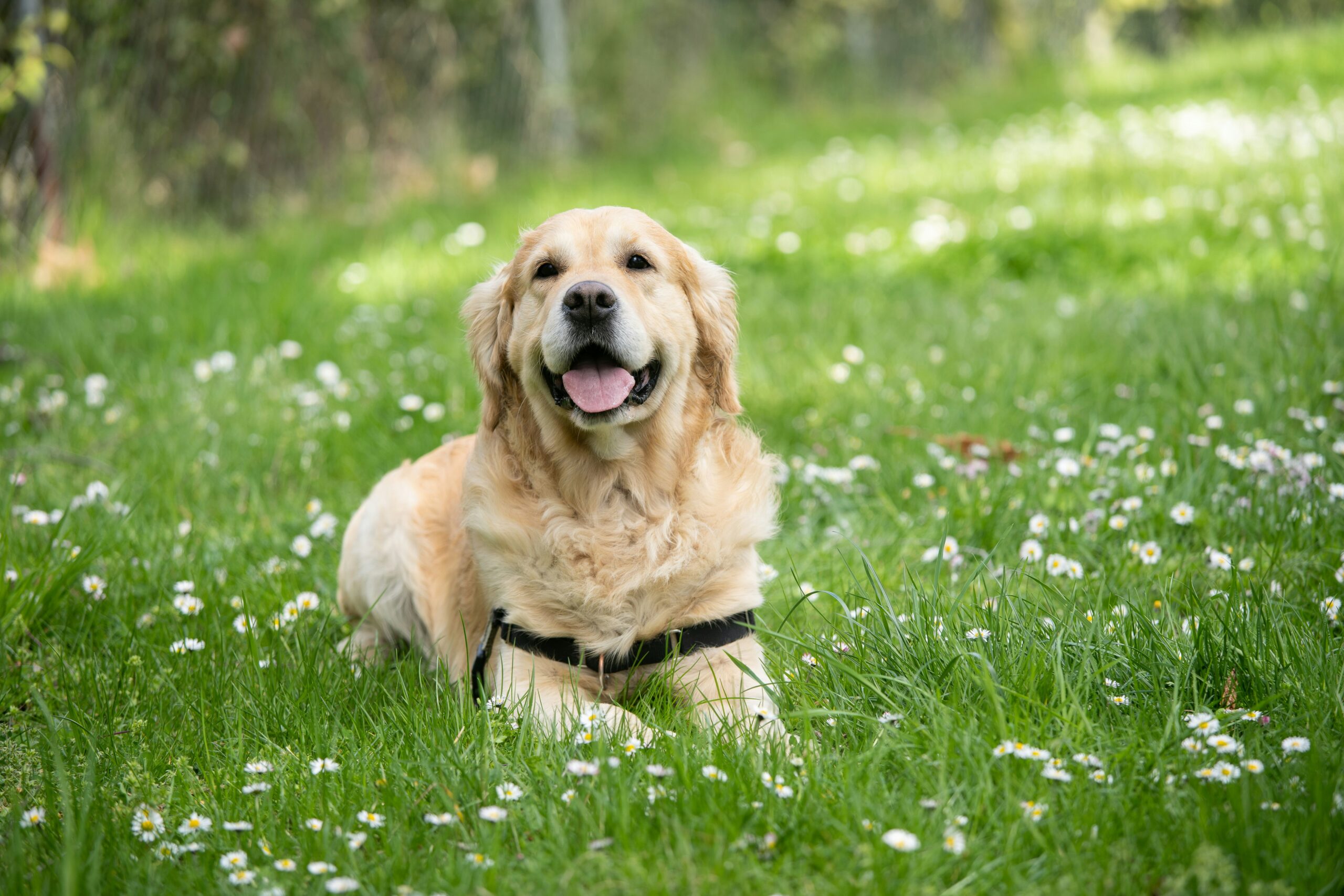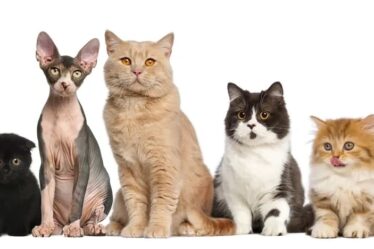
Golden Retrievers are one of the most popular dog breeds in the world, known for their friendly, tolerant attitudes and striking golden coats. Their intelligence, coupled with a gentle temperament, makes them perfect companions for families, as well as excellent working dogs in various capacities. This comprehensive guide delves into the origins, characteristics, care, training, and health considerations of Golden Retrievers, highlighting why they are such cherished members of many households.
Origins and History
The Golden Retriever originated in the Scottish Highlands in the late 19th century. They were initially bred by Lord Tweedmouth, who sought to create the perfect hunting dog. By crossing the now-extinct Yellow Retriever with the Tweed Water Spaniel (and later adding Bloodhound, Irish Setter, and more Tweed Water Spaniel into the mix), Tweedmouth developed a breed that excelled in retrieving game from both water and land. Their exceptional retrieving ability, combined with a keen sense of smell and a soft mouth, made them ideal for hunting.
The breed was first recognized by the Kennel Club in England in 1913 and by the American Kennel Club in 1932. Since then, Golden Retrievers have grown in popularity, becoming not only renowned hunters but also beloved family pets, service dogs, and therapy animals.
Physical Characteristics

Golden Retrievers are medium to large-sized dogs, typically weighing between 55 to 75 pounds and standing about 21 to 24 inches tall at the shoulder. They have a strong, muscular build with a broad head, friendly eyes, and a straight muzzle. Their ears are medium-sized and hang down, adding to their gentle and approachable appearance.
The most distinctive feature of Golden Retrievers is their dense, water-repellent double coat. Their outer coat is long and wavy or flat, while the undercoat is soft and thick. Coat colors range from light to dark gold. Regular grooming is essential to maintain the health and appearance of their beautiful fur, as they shed moderately year-round and heavily during shedding seasons.
Temperament and Personality
Golden Retrievers are renowned for their friendly, tolerant, and well-mannered demeanor. They are incredibly social and thrive on human interaction. Known for their affectionate nature, they get along well with children and other pets, making them ideal family dogs.
Their intelligence and eagerness to please make them highly trainable. Golden Retrievers excel in obedience training and are often top performers in dog sports such as agility, obedience trials, and field events. They are also commonly used as guide dogs for the blind, hearing dogs for the deaf, and search and rescue dogs due to their keen sense of smell and tracking abilities.
While they are generally calm indoors, Golden Retrievers are active and playful, requiring regular exercise to keep them happy and healthy. Their high energy levels mean they enjoy activities such as running, hiking, swimming, and playing fetch.
Exercise and Activity Needs

Golden Retrievers are an active breed that requires ample daily exercise to maintain their physical and mental well-being. A lack of sufficient exercise can lead to boredom and potentially destructive behavior. Aim for at least one hour of vigorous exercise per day, which can include walks, runs, games of fetch, and playtime with other dogs.
Swimming is a particular favorite for many Golden Retrievers. Their water-repellent coats and love for water make them excellent swimmers. Regular physical activity helps keep them fit and can prevent common health issues such as obesity.
Mental stimulation is equally important. Engaging activities such as puzzle toys, obedience training, and dog sports can help keep their minds sharp and prevent boredom.
Grooming and Care
Coat Care
Regular grooming is essential to keep a Golden Retriever’s coat healthy and free of tangles. Brushing their fur at least three times a week helps remove loose hair and prevents mats from forming. During shedding seasons (spring and fall), daily brushing may be necessary.
Bathing should be done as needed, typically every 6-8 weeks, using a dog-friendly shampoo to avoid drying out their skin. Regular ear checks and cleaning are also important, as Golden Retrievers can be prone to ear infections due to their floppy ears.
Dental and Nail Care
Dental hygiene is crucial for Golden Retrievers. Brushing their teeth several times a week helps prevent tartar buildup and dental disease. Providing dental chews and toys can also aid in maintaining good oral health.
Nails should be trimmed regularly to prevent overgrowth and splitting. If you can hear their nails clicking on the floor, it’s time for a trim. Regular nail maintenance is important to avoid discomfort and potential injury.
Nutrition
A balanced diet is essential to keep a Golden Retriever healthy and energetic. High-quality commercial dog food that meets the breed’s nutritional needs is recommended. The diet should be rich in protein, healthy fats, and essential vitamins and minerals.
Portion control is important, as Golden Retrievers can be prone to obesity. Dividing their daily food intake into two meals and monitoring their weight helps prevent overfeeding. Consult your veterinarian to determine the best diet and feeding schedule for your Golden Retriever.
Health Considerations
Golden Retrievers are generally healthy dogs, but they are prone to certain genetic health issues. Regular veterinary check-ups and a proactive approach to their health can help manage these risks.
Common Health Issues
- Hip Dysplasia: This genetic condition affects the hip joints and can lead to arthritis. Regular exercise and maintaining a healthy weight can help manage this condition.
- Elbow Dysplasia: Another joint condition that can cause lameness and arthritis. Treatment may include weight management, physical therapy, and in some cases, surgery.
- Heart Conditions: Golden Retrievers are susceptible to certain heart diseases, such as subvalvular aortic stenosis (SAS). Regular heart check-ups are crucial.
- Eye Conditions: They are prone to cataracts, progressive retinal atrophy (PRA), and other eye disorders. Regular eye exams can help detect and manage these conditions.
- Cancer: Golden Retrievers have a higher incidence of certain cancers, including hemangiosarcoma and lymphoma. Early detection and treatment are vital.
Preventative Care
Routine veterinary visits are essential for early detection and prevention of health issues. Vaccinations, parasite control, and regular health screenings should be part of their overall care plan. Maintaining a healthy diet, providing regular exercise, and keeping up with grooming can significantly contribute to their overall health and longevity.
Training and Socialization

Golden Retrievers are highly intelligent and eager to please, making them one of the easiest breeds to train. Consistent, positive reinforcement methods work best, as they respond well to praise, treats, and play. Early socialization and puppy training classes are recommended to help them develop good manners and confidence.
Basic obedience training should start as early as possible, teaching commands such as sit, stay, come, and heel. Advanced training can include agility, obedience competitions, and other dog sports. Socialization with different people, animals, and environments helps prevent fearfulness and ensures a well-rounded adult dog.
Conclusion
Golden Retrievers are much more than their beautiful golden coats and friendly faces. They are intelligent, loyal, and versatile dogs that make excellent companions for families, service animals, and working dogs. Their loving nature, coupled with their adaptability and trainability, makes them a beloved breed worldwide.
Caring for a Golden Retriever requires commitment, including regular exercise, grooming, and proper nutrition. Understanding their health needs and providing preventive care can ensure they live long, healthy, and happy lives. With the right care and attention, a Golden Retriever will bring endless joy, companionship, and love to your home, becoming a cherished member of your family for years to come.


